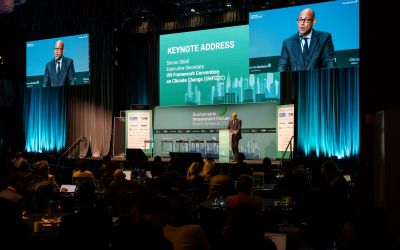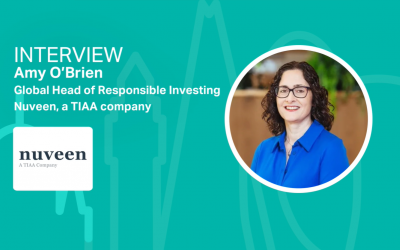Climate Finance is the game changer we need
A greener future depends on the widespread adoption of low carbon technologies. Through the Sustainable Development Goals and Paris climate agreement, world leaders have outlined a transformative agenda which heralds a shift from a fossil-fuel based global economy to one that is low carbon and climate resilient. And funding this future means we need to think in terms of trillions not billions.
The private sector – many of whom are already factoring climate change into their business models, investment decisions and disclosure statements – will play a crucial role in driving these investments. And in many developing and emerging economies, the Climate Investment Funds (CIF) can help.
To date, the CIF has allocated more financing to private sector mitigation, forestry and adaptation investments than any other multilateral climate fund. Our $5.6 billion Clean Technology Fund, the largest of the CIF’s four funding windows, is channeling $1.9 billion to support private sector work in renewable energy, energy efficiency and sustainable transport projects and is expected to leverage $20 billion in private sector co-financing.
The CIF takes a two-pronged approach to catalyzing climate-smart investments.
Firstly, we leverage our unique business model to provide risk-taking, long-term concessional financing at scale, which we have seen time and time again is essential to help scale up key technologies and sectors in emerging markets.
The scale of the challenge is striking – Brookings Institution research says $90 trillion worth of investment is needed in sustainable infrastructure over the next 15 years. But so is the innovation potential for sustainable energy finance, which is much needed if emerging economies are to develop along a low-carbon path with renewables instead of coal.
Concessional financing can play a catalytic role in delivering these innovative climate-smart investments. For example, in Morocco, the CIF has supported the Noor-Ouarzazate Concentrated Solar Power (CSP) complex – the world’s largest. The CIF channeled $435 million towards the plant, alongside the investment of around $700 million by the African Development Bank and World Bank, contributing to the $3+ billion total from foreign and multilateral investors. Independent analysis concludes that the low-cost debt is already driving down the cost of CSP in Morocco by 25% for Noor I and an additional 10% for Noor II and III, thus reducing the government subsidy required to bridge the affordability gap for CSP.
And in Thailand, the International Finance Corporation (IFC) blended $4 million of CTF funds alongside $8 million of its own funds into two of Thailand’s first utility-scale solar PV plants via long term debt, which was unavailable in the market at the time. The successful financing of these early projects helped send positive signals to the local market and demonstrated to investors that solar PV could make good business sense in Thailand. This paved the way for the developer to subsequently raise over $800 million of investment in just a few years, while also helping accelerate the development of Thailand’s nascent solar PV sector.
It’s this kind of funding which is really transformational. And that’s where our second approach has the potential to be a game-changer. The CTF is continuously refining its private sector approach to adjust to changing market conditions. We’re now exploring the next frontier and developing a strategy to raise financing from private capital markets. We know from our years of experience of working with the private sector that investors are keen to increase their low carbon and climate resilient investments. And we’ve just seen 400 investors with $25 trillion in assets reaffirm this by joining the Investor Platform for Climate Actions.
That’s why we envision this groundbreaking CTF financing vehicle – the first of its kind – would offer a unique opportunity for institutional investors looking for a sustainable and diversified portfolio. It would support climate-smart investments in frontier areas such as energy storage, distributed generation and industrial and residential efficiency while helping to scale up existing technologies such as solar energy and sustainable transport. And it would help provide emerging economies with the financial support they need to pursue their low-carbon development plans.
Such innovation is needed if we are to move from billions to trillions.
Mafalda will be speaking on this topic at the Sustainable Investment Forum In New York, 20th September 2016. Find out more here: http://www.sustainableinvestmentforum.org/








